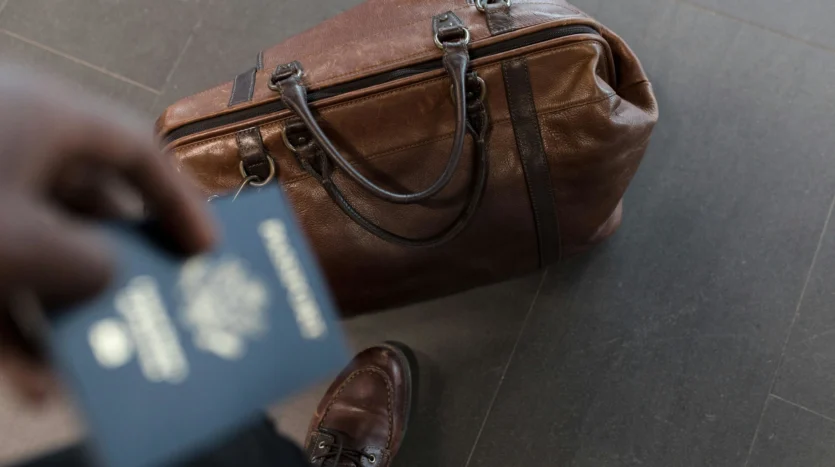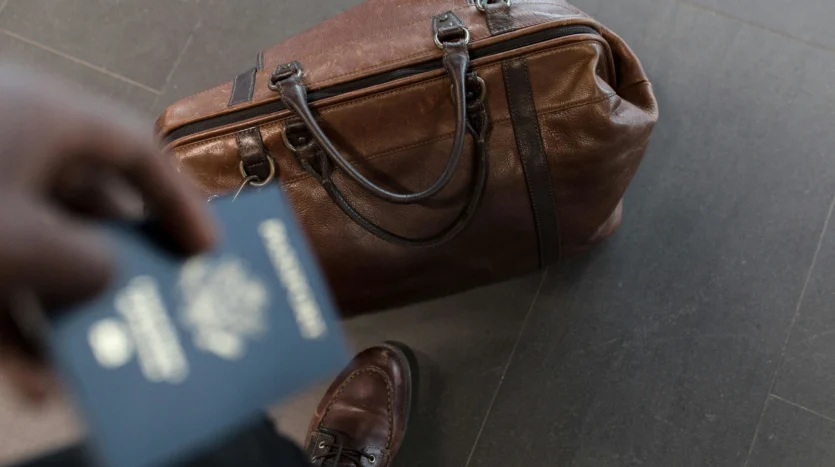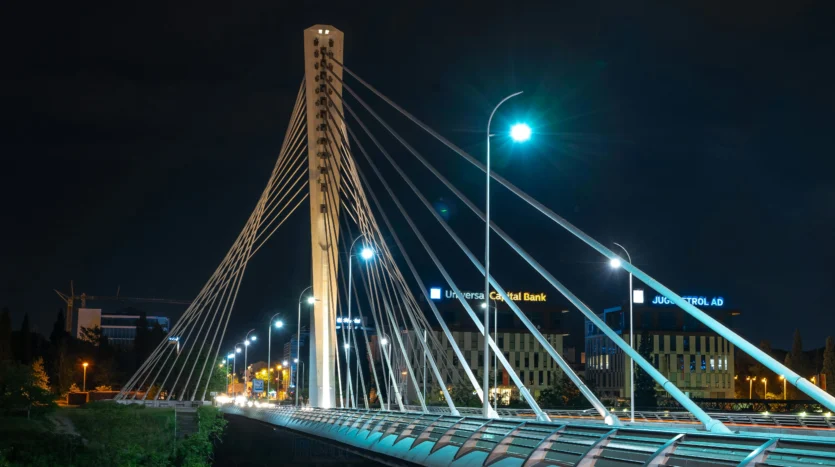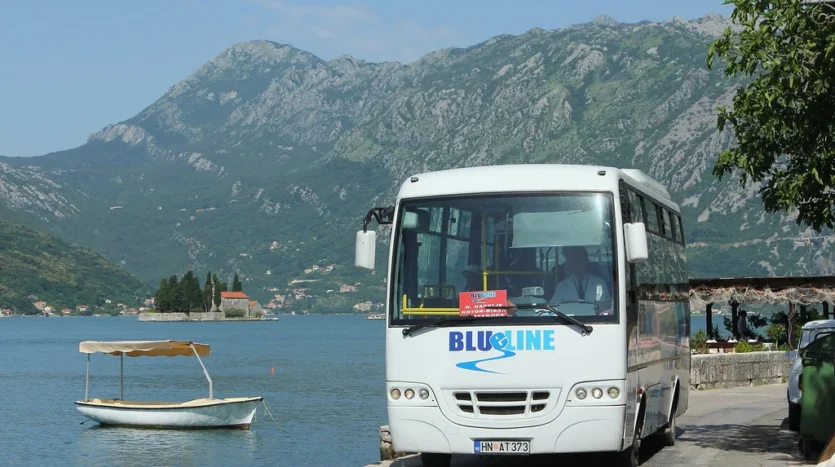Is Montenegro Safe?
Montenegro, a stunning gem on the Adriatic Sea, has become an increasingly popular travel destination over recent years. With its breathtaking landscapes, rich history, and welcoming culture, many travelers are drawn to its shores. However, before planning a trip, a common question arises: Is Montenegro safe? This comprehensive guide aims to provide an honest and thorough answer, covering various aspects of safety in Montenegro, both for travelers and potential residents.

Overview of Safety in Montenegro
General Safety
Montenegro is considered a safe country for travelers and expatriates. According to the Global Peace Index, Montenegro ranks 62nd out of 163 countries, reflecting its relatively low crime rates and peaceful environment. The crime rate is relatively low, and violent crime is rare. Petty crime, such as pickpocketing and bag snatching, can occur, particularly in crowded tourist areas, but it is not a major concern if basic precautions are taken.
Crime and Security
Petty Crime
- Pickpocketing and Bag Snatching: These are the most common crimes encountered by tourists. They typically occur in crowded places such as markets, bus stations, and tourist attractions. To minimize risk, keep an eye on your belongings and avoid carrying large amounts of cash. Using a money belt or a secure bag can help deter pickpockets. According to local statistics, instances of petty crime have decreased by 10% over the past five years, thanks to increased police presence in tourist areas.
Violent Crime
- Violent Crime: Incidents of violent crime involving tourists are extremely rare. The overall atmosphere in Montenegro is relaxed, and violent crimes are uncommon in most tourist areas. The murder rate in Montenegro is 1.7 per 100,000 people, which is significantly lower than in many Western countries. Most violent crime incidents are related to organized crime and do not affect tourists.
Organized Crime
- Organized Crime: While Montenegro has had issues with organized crime, these incidents generally do not affect tourists. Most organized crime activities are targeted and do not pose a direct threat to visitors. The government has been actively working to combat organized crime, leading to a noticeable decrease in such activities over the past decade.
Safety in Major Cities
Montenegro’s cities each offer unique experiences and levels of safety. Here’s a look at some of the main cities:

Podgorica
- Overview: As the capital and largest city of Montenegro, Podgorica is the political and economic heart of the country. It has a mix of modern and historical attractions.
- Safety: Podgorica is generally safe, with a low crime rate. Petty crime like pickpocketing can occur in crowded areas, but violent crime is rare. The city has a strong police presence, especially in tourist-heavy zones.
Budva
- Overview: Budva is known for its vibrant nightlife, beautiful beaches, and historical old town. It’s a major tourist destination, especially in the summer.
- Safety: Budva is safe, but the influx of tourists in the summer can lead to an increase in petty crimes like pickpocketing. The local authorities are vigilant, and security is increased during the tourist season.
Kotor
- Overview: Kotor is famous for its stunning bay, medieval architecture, and UNESCO World Heritage status. It attracts tourists year-round.
- Safety: Kotor is very safe, with minimal crime. The old town is well-patrolled, and the local community is welcoming to tourists.
Tivat
- Overview: Tivat is home to Porto Montenegro, a luxury marina and residential complex. It’s known for its upscale environment and beautiful coastal views.
- Safety: Tivat is considered one of the safest areas in Montenegro. The presence of luxury residences and high-end tourism ensures a strong security presence.
Herceg Novi
- Overview: Known for its spas and healing sea mud, Herceg-Novi is a charming coastal town with a rich history and beautiful natural surroundings.
- Safety: Herceg Novi is generally safe, with low crime rates. Petty crime is rare, and the town is considered very welcoming to visitors.
Living in Montenegro
Montenegro is not only a safe place to visit but also a wonderful country to live in. Expats are increasingly choosing Montenegro for its affordability, natural beauty, and quality of life.
Quality of Life
- Cost of Living: The cost of living in Montenegro is relatively low compared to Western Europe and North America. Housing, food, and services are affordable, making it an attractive option for expats.
- Healthcare: Montenegro has a reasonably good healthcare system with public and private hospitals and clinics. Expats typically opt for private healthcare, which offers high standards of service.
- Education: There are several international schools in Montenegro, particularly in Podgorica and Tivat, providing quality education for expat children.
Expat Communities
- Integration: Montenegro has a growing expat community, particularly in coastal areas like Budva and Tivat. Expats often find it easy to integrate due to the friendly and welcoming nature of the locals.
- Support Networks: Various expat groups and online communities can provide support and advice for new residents.
Safety for Residents
- Crime Rates: For residents, the crime rates remain low. The majority of crimes are non-violent and involve property rather than personal safety.
- Emergency Services: Montenegro has a reliable emergency service network. The general emergency number is 112, with specific numbers for police (122), fire (123), and medical emergencies (124).
Health and Medical Safety
Health Care System
- Health Care: Montenegro has a reasonably good healthcare system with public and private hospitals and clinics. Major towns and cities have medical facilities, but rural areas might have limited access to healthcare services. Public healthcare is available to residents and EU nationals, while travelers can access private healthcare, which is of a high standard.
- Medical Insurance: It is advisable to have comprehensive travel insurance that covers medical expenses. Ensure your policy includes coverage for emergency evacuations and any adventure activities you plan to undertake. The cost of medical treatment in Montenegro is relatively affordable compared to Western Europe and the US, but it’s always better to be covered.
Road and Traffic Safety
Driving Conditions
- Road Conditions: Montenegro’s road infrastructure is generally good, particularly in urban areas and popular tourist routes. However, some rural roads may be narrow and poorly maintained. According to the World Health Organization, road traffic accidents in Montenegro have been decreasing, with a current rate of 8.2 fatalities per 100,000 inhabitants, which is lower than the global average.
- Driving Laws: Adhere to local driving laws, including speed limits and seat belt usage. Be cautious of local driving habits, as some drivers may engage in risky behaviors. It’s advisable to avoid driving at night in rural areas due to the possibility of encountering poorly lit roads and livestock.
Public Transportation

- Buses and Trains: Public transportation is generally safe, though services can be infrequent in rural areas. Use reputable bus companies and check schedules in advance. Buses are a common mode of transport and are often crowded, especially during peak travel seasons.
Here you can find some of the most popular Montenegro travel routes: getbybus.
Natural Disasters
Earthquakes
- Earthquakes: Montenegro is in a seismically active region. While major earthquakes are rare, it’s important to be aware of this risk and know basic earthquake safety procedures. The country has building codes designed to withstand seismic activity, reducing the potential impact of earthquakes on infrastructure.
Flooding and Landslides
- Flooding and Landslides: These can occur, particularly during the rainy season. Stay informed about weather conditions and avoid traveling through affected areas during heavy rains. Local authorities typically provide warnings and updates during adverse weather conditions.
LGBTQ+ Safety
LGBTQ+ Rights
- Acceptance: Montenegro has made strides in LGBTQ+ rights, but social acceptance varies. Larger cities and tourist areas tend to be more accepting, while rural areas may be less so. Montenegro hosts an annual Pride parade in Podgorica, which has been growing in size and support each year.
- Legal Protections: Discrimination based on sexual orientation is prohibited by law, but societal attitudes can differ. Exercise discretion and be mindful of the local culture. Same-sex couples may face some challenges, but overall, LGBTQ+ travelers report positive experiences.
Women’s Safety
Solo Female Travelers
- General Safety: Montenegro is generally safe for solo female travelers. Common sense precautions, such as avoiding poorly lit areas at night and not accepting drinks from strangers, should be taken. Women traveling alone often report feeling safe and welcome.
- Cultural Norms: Be aware of local cultural norms and dress modestly, especially in rural areas and religious sites. While Montenegro is relatively liberal, dressing modestly can help avoid unwanted attention.
Emergency Services
Contact Information
- Emergency Numbers: The general emergency number in Montenegro is 112. Other important numbers include 122 for police, 123 for fire, and 124 for medical emergencies. These numbers can be dialed from any phone and are staffed by operators who can assist in multiple languages, including English.
Consular Support
- Embassies and Consulates: Ensure you have the contact details for your country’s embassy or consulate in Montenegro. They can provide assistance in case of emergency. It’s also a good idea to register your travel plans with your embassy, so they can reach you in case of an emergency.
Tourist Experiences and Personal Stories
Many tourists who visit Montenegro have positive experiences, praising the country’s natural beauty, friendly locals, and rich cultural heritage. Personal stories from travelers often highlight the safety and hospitality they encountered.
- Henry from the Germany: “I spent two weeks traveling around Montenegro, and I felt safe the entire time. The people were incredibly friendly, and I didn’t experience any issues with crime. The local police were visible in tourist areas, which was reassuring.”
- Sarah from the USA: “As a solo female traveler, I was initially concerned about safety, but my trip to Montenegro was fantastic. I took basic precautions like I would in any country, and I felt very safe. The locals were helpful and welcoming.”
Local Law Enforcement and Security Measures
Montenegro has a professional and responsive law enforcement system. The police force is present in major tourist areas and is trained to assist visitors. Security measures have been increased in recent years to ensure the safety of tourists and residents alike.
- Increased Police Presence: Tourist areas and events often have an increased police presence to deter crime and assist visitors.
- Tourist Assistance: Many police officers in tourist areas speak English and are trained to assist international visitors with any issues they may encounter.
Conclusion
Montenegro is a safe and welcoming destination for travelers and a wonderful place to live for expatriates. By taking basic precautions and staying informed, you can enjoy a worry-free and memorable visit or residency. Whether you’re exploring historic towns, relaxing on beautiful beaches, or hiking in scenic mountains, Montenegro offers a wealth of experiences in a safe and inviting environment.







